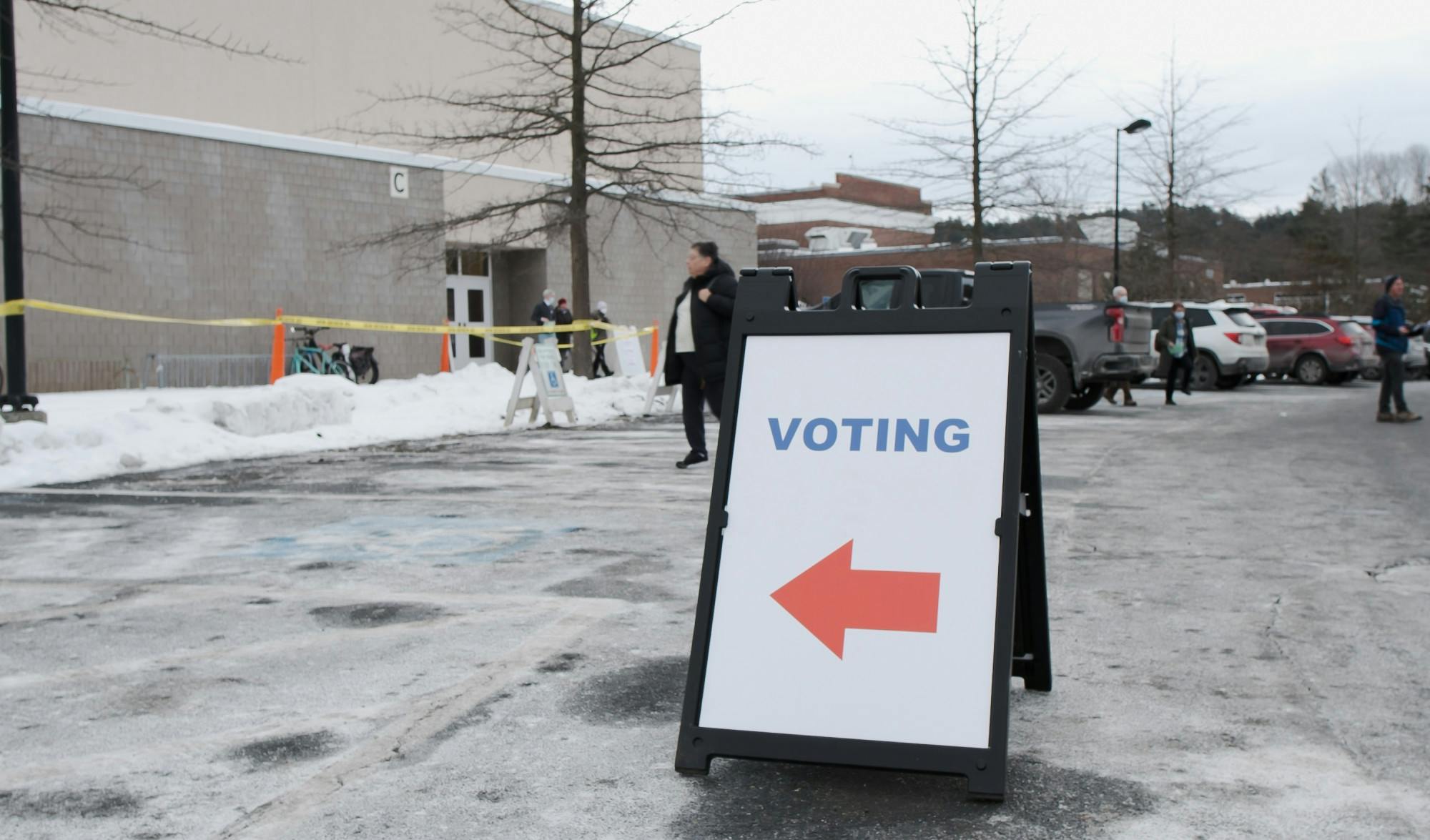New Hampshire’s high number of independent voters — who constitute a plurality of total eligible voters — were a closely watched group in the 2024 New Hampshire presidential primaries. In a competitive Republican primary that former President Donald Trump was once poised to win with an overwhelming lead, former South Carolina Gov. Nikki Haley appealed to the Granite State’s independent voters and placed second, finishing 11 percentage points behind Trump.
According to former New Hampshire Attorney General and Republican strategist Tom Rath ’67, independent voters in New Hampshire are “independents by choice” and “go where they think they make a difference.” Rath — who was involved in several presidential campaigns — said that independents gravitated towards the Republican primary in 2024 because it became a “referendum on Trump.”
“There were very few independents who were going to vote for Trump because they would have already become Republicans,” Rath said.
Government professor and state legislator Russell Muirhead, D-Grafton 12, said that once Haley decided to “present herself as an alternative [to Trump],” many voters in New Hampshire began to view her as a “compelling candidate.”
However, Rath emphasized that independents were also drawn to write in Biden’s name in the Democratic primary.
“The Republican field never really sorted itself out,” Rath said. “People got in, got out, dropped out, etc. For every independent who took a Democratic ballot instead of a Republican ballot, that was probably a vote taken off Haley.”
While Haley received more votes than Biden’s write-in votes in Hanover, Rath estimated that “Biden probably took a good number — 20,000 or 30,000 [votes] — out of the Republican race, which would have been non-Trump votes.”
Muirhead said that the write-in campaign for Biden was a “massive ratification of Joe Biden’s strength as a candidate.”
“The Democratic National Committee literally sent a letter to the head of the state Democratic Party a couple weeks before the primary urging voters not to vote in the primary, saying it was a meaningless election,” Muirhead said. “New Hampshire voters refused to listen to the DNC.”
According to Muirhead, independent voters in New Hampshire want to see candidates with “pragmatic, non-ideological [approaches] to governance” and “common sense solutions” regarding fiscal policy and foreign policy, and, in recent years, climate change, renewable energy and abortion.
In the last 25 to 30 years, population migration into New Hampshire’s Southern Tier — the area between Manchester, New Hampshire and the Massachusetts border — has brought in a new group of people who “tend to register as independents,” according to Rath.
In addition to a growth in independent voters, Rath said that New Hampshire has become “less Republican” than it once was but not “totally Democratic.” The northern part of the state remains “old-line Republican,” while Manchester has more “working class Democrats,” according to Rath.
“It’s a pretty good bellwether, in terms of where people are,” Rath said. “No one has it easy here. We tend to have relatively close elections, and the in-migration has changed the demographic makeup of our population quite a bit.”
The first-in-the-nation status of the New Hampshire primaries can “ratify the legitimacy of a candidacy,” but the rest of the country decides which candidates win the party nominations, according to Muirhead. He referenced Walter Mondale receiving the Democratic Party nomination in 1984, despite losing the New Hampshire primary.
According to previous reporting from The Dartmouth, Gov. Chris Sununu, R- N.H., affirmed that “success in New Hampshire is not the same as a presidential victory,” and that Haley did not have to win the New Hampshire primary to continue her campaign.
However, Rath added that the New Hampshire primary “cuts the field” of candidates down so that later primaries have fewer choices.
“I think there are some [states with later primaries] where they say, ‘Oh, we’ll show New Hampshire what we think. They’re wrong,’” Rath said. “... The drama around our process draws other people in.”
Candidates who campaign in New Hampshire have to “show up,” according to Muirhead. Rath explained that the in-person interactions that New Hampshire voters expect from candidates widely differ from the impersonal commercials and television appearances that candidates use to appeal to voters elsewhere.
“When [the candidates] go off and they talk about what a voter in New Hampshire told them, that may be the last voter they talked to,” Rath said.
Muirhead said that Haley “didn’t do nearly enough” to connect with New Hampshire voters.
“She didn’t campaign very hard, she didn’t campaign very long," Muirhead said. “If she had done her job in New Hampshire, she would have won the primary.”
While it is expected for presidential candidates to show up and personally connect with voters, Rath said it is also a “civic value” among New Hampshire voters to pay attention to politics.
In recent years, technology and digital communication have changed how candidates interact face-to-face with voters. However, Rath said that it is still important for candidates to “see real voters” in New Hampshire.
“Most candidates are better after they’ve been through New Hampshire than before because they’ve been challenged,” Rath said. “We serve as a reminder that what you do in office affects real people.”
Kelsey Wang is a reporter and editor for The Dartmouth from the greater Seattle area, majoring in history and government. Outside of The D, she likes to crochet, do jigsaw puzzles and paint.




